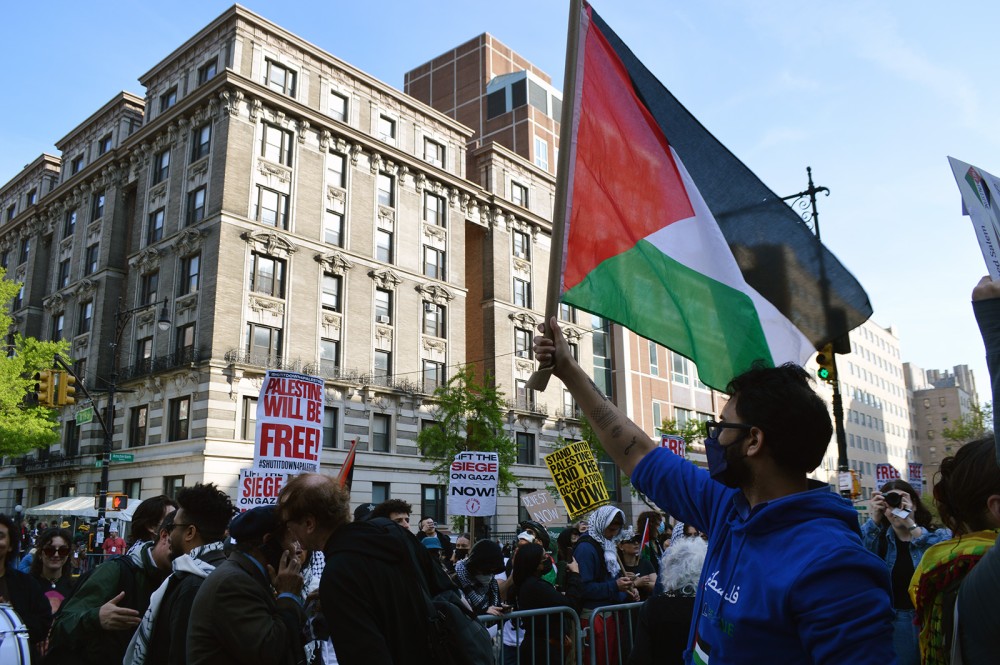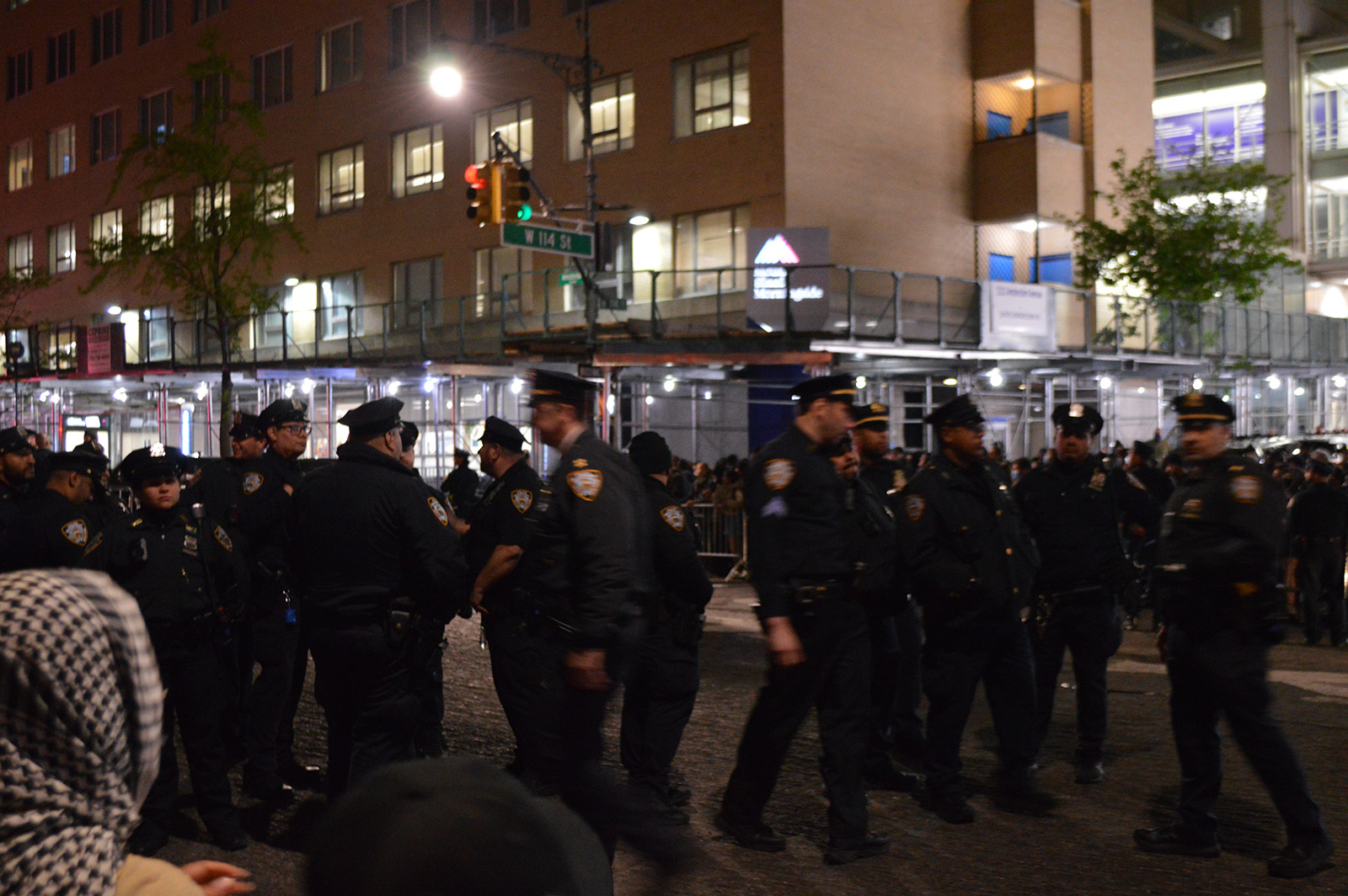Muslim student protestors feel sense of purpose mingled with fear

A protestor waves a Palestinian flag outside the Columbia University campus gates on April 30. (Photo by Dina Katgara)
Fahad Kiani knows he is making history by participating in the pro-Palestinian protests on college campuses around New York. Over the past few weeks, Kiani, a graduate of the City University of New York, has demonstrated at his alma mater and at Columbia University.
But while the heightened police presence and the 24-hour tent encampments dominate news headlines, Kiani found hope when a fellow protester decided to become Muslim just outside Columbia’s gates one night last week.
“It was the best experience of my night,” Kiani, a Pakistani American, said. “That really kind of turned it around from all of the wild hatred I’m seeing around me.”
As some campuses around the country enter a fourth week of student protests against the Israel-Hamas war and demanding that their universities divest financially from Israel, Muslim protesters express a sense of both religious solidarity and cautious unease at the watching world.
On Monday, Columbia announced it would not be holding its main commencement ceremony over security concerns. Meanwhile, in California, at least 100 more protesters were arrested at universities across the state, bringing the total number of protesters detained to more than 2,500 at nearly 50 US schools since April 18, according to the New York Times.

After completing his Friday prayers on May 3, Fahad Kiani donned a kaffiyeh and reflected on his experience at the Columbia University pro-Palestinan protest. (Photo by Dina Katgara)
The Israel-Hamas war, which has claimed the lives of more than 34,000 in the Gaza Strip, according to the Gaza Ministry of Health, has become a flashpoint of both religious and political tension in the US. On college campuses, protesters and counterprotesters have set up encampments and rallies to demand a cease-fire or to express solidarity with Israel’s military campaign, launched after the Hamas attacks on October 7 that left as many as 1,200 dead in Israel and more than 200 taken hostage, according to the Israeli Ministry of Foreign Affairs.
Despite these external divisions, Muslim, Christian, and Jewish students within the Columbia encampment have described a sense of interfaith cooperation and support.
During Friday prayers, non-Muslims in the encampment covered the worshippers with blankets to shield their identities from photographers, according to Columbia sophomore Ashar Khan. During that hot day, the protesters held the blankets up for about an hour. Afterward, Jewish protesters in the encampment held their Passover Seder dinners.

Just before 10 p.m. on April 30, officers wait for New York Police Department buses carrying arrested protestors to drive through. (Photo by Dina Katgara)
Khan, who serves as events coordinator for Columbia’s Muslim Student Association, feels that there is a lack of Muslim-specific mental health support for students on campus. The primary campus support for Muslim students is from Columbia Islamic chaplain Imam Ebad Rahman. Still, with what Khan estimates to be about 350 Muslims on campus active in MSA, one person can’t support them all.
Rahman did not respond to a request for comment.
The 11 board members of MSA rely on each other for support in the encampment by gathering supplies and organizing speakers and prayers.
“We’ve been trauma bonded over the past year,” Khan said.
Although Khan is confident in his stance to protest, he sometimes struggles with worries about the consequences.
“What am I going to do that will be perceived as a mistake that is going to get me expelled from the university?” Khan said. “Am I going to be in the wrong place at the wrong time?”
He grounds himself in Muslim ideology. He said that the highest form of jihad, or struggle, is to speak the truth in the face of injustice.
“No matter who it is, whether Muslim or non-Muslim, you should stand up for justice, even if it’s against yourself, even if it’s against your like kinfolk, even if it’s against the rich or the poor.”
And standing with Palestine, Khan said, is a religious obligation because the Muslim community is like one united human body.
“When the head of the body or the arm of the body feels feverish, the whole body feels weak and feverish,” he said. “When one part of the community is hurting, all of us are hurting.” —Religion News Service




